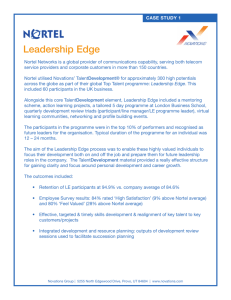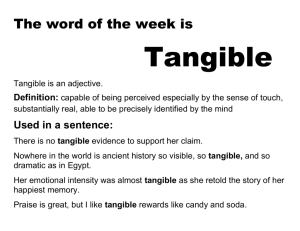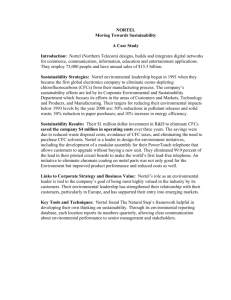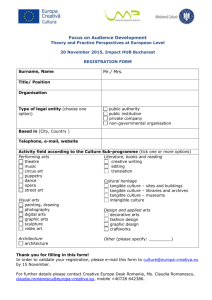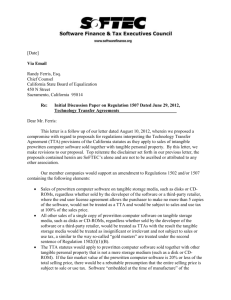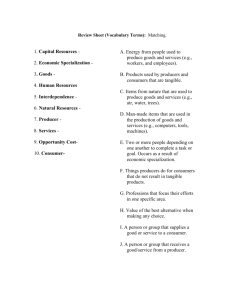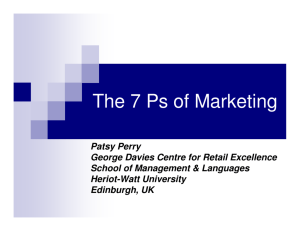Software and California Sales and Use Tax
advertisement
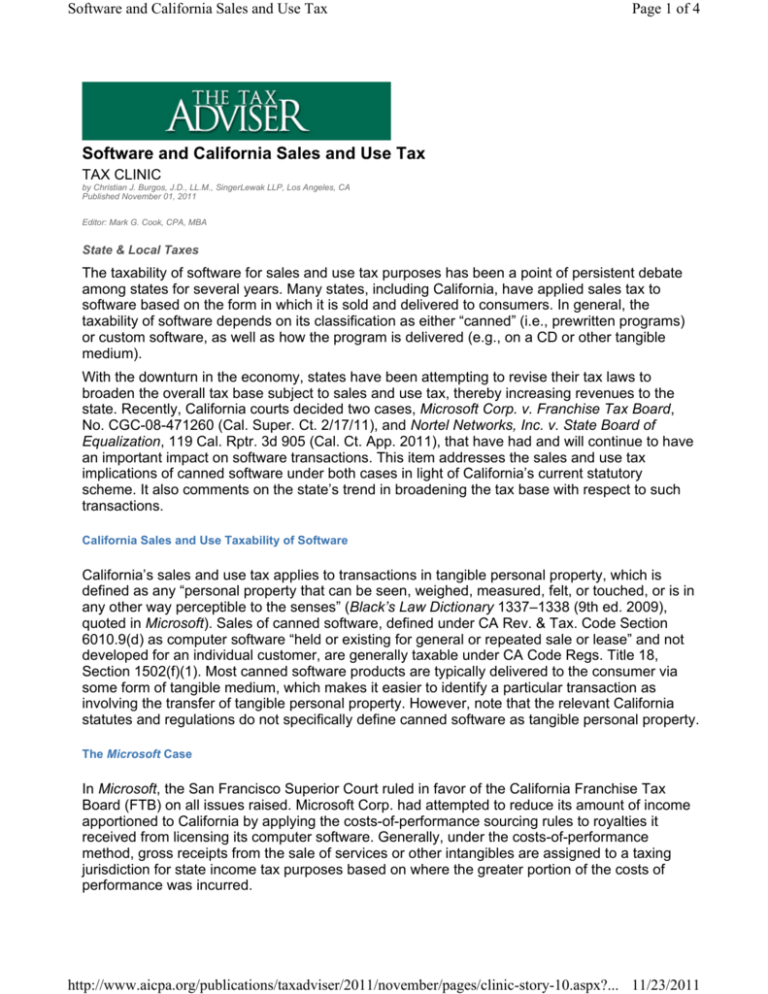
Software and California Sales and Use Tax Page 1 of 4 Software and California Sales and Use Tax TAX CLINIC by Christian J. Burgos, J.D., LL.M., SingerLewak LLP, Los Angeles, CA Published November 01, 2011 Editor: Mark G. Cook, CPA, MBA State & Local Taxes The taxability of software for sales and use tax purposes has been a point of persistent debate among states for several years. Many states, including California, have applied sales tax to software based on the form in which it is sold and delivered to consumers. In general, the taxability of software depends on its classification as either “canned” (i.e., prewritten programs) or custom software, as well as how the program is delivered (e.g., on a CD or other tangible medium). With the downturn in the economy, states have been attempting to revise their tax laws to broaden the overall tax base subject to sales and use tax, thereby increasing revenues to the state. Recently, California courts decided two cases, Microsoft Corp. v. Franchise Tax Board, No. CGC-08-471260 (Cal. Super. Ct. 2/17/11), and Nortel Networks, Inc. v. State Board of Equalization, 119 Cal. Rptr. 3d 905 (Cal. Ct. App. 2011), that have had and will continue to have an important impact on software transactions. This item addresses the sales and use tax implications of canned software under both cases in light of California’s current statutory scheme. It also comments on the state’s trend in broadening the tax base with respect to such transactions. California Sales and Use Taxability of Software California’s sales and use tax applies to transactions in tangible personal property, which is defined as any “personal property that can be seen, weighed, measured, felt, or touched, or is in any other way perceptible to the senses” (Black’s Law Dictionary 1337–1338 (9th ed. 2009), quoted in Microsoft). Sales of canned software, defined under CA Rev. & Tax. Code Section 6010.9(d) as computer software “held or existing for general or repeated sale or lease” and not developed for an individual customer, are generally taxable under CA Code Regs. Title 18, Section 1502(f)(1). Most canned software products are typically delivered to the consumer via some form of tangible medium, which makes it easier to identify a particular transaction as involving the transfer of tangible personal property. However, note that the relevant California statutes and regulations do not specifically define canned software as tangible personal property. The Microsoft Case In Microsoft, the San Francisco Superior Court ruled in favor of the California Franchise Tax Board (FTB) on all issues raised. Microsoft Corp. had attempted to reduce its amount of income apportioned to California by applying the costs-of-performance sourcing rules to royalties it received from licensing its computer software. Generally, under the costs-of-performance method, gross receipts from the sale of services or other intangibles are assigned to a taxing jurisdiction for state income tax purposes based on where the greater portion of the costs of performance was incurred. http://www.aicpa.org/publications/taxadviser/2011/november/pages/clinic-story-10.aspx?... 11/23/2011 Software and California Sales and Use Tax Page 2 of 4 Microsoft argued that the royalties at issue were not attributable to licensing tangible personal property, but rather to licensing intangible property. As such, the source of the royalties should have been determined in accordance with the costs-of-performance rules, the company said. This method would have excluded 100% of the company’s royalty income from California. The court, however, disagreed, holding that the royalties were from tangible personal property. In its holding, the court relied upon similar rulings from other jurisdictions, quoting the Utah Supreme Court case South Central Utah Telephone Ass’n v. Utah State Tax Comm’n, 951 P.2d 218 (Utah 1997): “Software is information recorded in a physical form which has a physical existence, takes up space on the tape, disc, or hard drive, makes physical things happen, and can be perceived by the senses.” The California court added, citing the Louisiana Supreme Court in South Central Bell Telephone Co. v. Barthelemy, 643 So. 2d 1240 (La. 1994): The software itself, i.e., the physical copy, is not merely a right or an idea to be comprehended by the understanding. The purchaser of computer software neither desires nor receives mere knowledge, but rather receives a certain arrangement of matter that will make his or her computer perform a desired function. This arrangement of matter, physically recorded on some tangible medium, constitutes a corporeal body. [Emphasis added] In short, the court found that the classification of software as tangible personal property does not depend on the separability of the program from the tangible medium on which it is recorded, but rather on the view that the written program is a “tangible manifestation of intellectual property.” Although Microsoft is a corporate income tax case, the court’s ruling on software as tangible personal property should be authoritative (under the principle of stare decisis) for purposes of the sales and use tax, to maintain consistency between both tax types. At the time of this writing, Microsoft has not indicated whether it will appeal the Superior Court’s ruling. Electronically Delivered Software Historically, California has exempted electronically delivered software from sales and use tax. CA Code Regs. Title 18, Section 1502(f)(1)(D), provides that [t]he sale or lease of a prewritten program is not a taxable transaction if the program is transferred by remote telecommunications from the seller’s place of business, to or through the purchaser’s computer, and the purchaser does not obtain possession of any tangible personal property, such as storage media, in the transaction. The holding in Microsoft, however, is inconsistent with the regulation, as software was defined as tangible personal property regardless of the form in which it is recorded. The Microsoft case may thus represent a move toward broadening the tax base. The notion of sales taxability of electronically delivered software is not without foundation. The Streamlined Sales and Use Tax Agreement (SSUTA), a compendium of sales and use tax laws developed and adopted by 24 member states, aims to simplify and uniformly administer sales and use tax laws. The SSUTA defines canned software, whether delivered on a tangible format or electronically, as tangible personal property. Member states are allowed, but are not required, to exempt electronically delivered software from sales or use tax. California is not a member of the SSUTA. However, many of the state’s sales tax laws are modeled closely on the SSUTA, and the state has continuously tended to align its tax laws with the agreement. As of the date of this item, only 15 states, including California, exempt electronically delivered software from sales and use taxation, and it is unclear whether California will change its position. http://www.aicpa.org/publications/taxadviser/2011/november/pages/clinic-story-10.aspx?... 11/23/2011 Software and California Sales and Use Tax Page 3 of 4 The Nortel Case The implications of the Microsoft case and the growing influence of the SSUTA may not be welcome news to most software developers. However, the looming “tax cloud” may not be as dark as it appears. The California Supreme Court recently denied the California State Board of Equalization’s (BOE) appeal in Nortel of the state appellate court’s holding that licensing of prewritten software under a technology transfer agreement was statutorily exempt from sales and use taxation. The decision in Nortel has had broad implications for the taxation of prewritten software in California. The BOE has long maintained that all sales of canned software not exempt under any other provision of the state code are subject to the sales tax. Based on the Nortel decision, however, the BOE has had to review every software license on a case-by-case basis, including mass-produced canned software, to determine whether the software is subject to a patent or copyright and thus covered under the technology transfer agreement exemption. As such, sales of mass-produced software programs, such as those produced by Microsoft, will be subject to claims of exclusion from tax. Nortel manufactured and sold switches to Pacific Bell Telephone Co. (PacBell). Each switch processed telephone calls and handled features such as conference calling, call waiting, and voice mail. A switch is hardware composed of computer processors, frames, shelves, drawers, circuit packs, cables, and trunks. In addition, Nortel and PacBell entered licensing agreements that gave PacBell the right to use Nortel’s software programs in the switches. Nortel licensed two types of software to PacBell: • Prewritten operator workstation programs (connecting customers to operators), data center programs (connecting customers to directory assistance), and switch-connection programs (allowing switches to communicate with each other); and • Switch-specific programs (SSPs) that operated the switch and enabled it to process telephone calls. Each SSP was unique, created for a particular switch, and PacBell could not use it to operate any other switch. Nortel did not claim, however, that it created a tax-exempt custom computer program for PacBell. Both types of software licensed by Nortel were copyrighted and subject to Nortel’s patents. The company shipped the software to PacBell on a tangible storage medium, such as disks, magnetic tapes, or cartridges. The licensing agreements allowed PacBell to copy the software from the storage medium and load it into the operating memory of a switch’s computer hardware. This authorization to copy the software onto its computers allowed PacBell to use the programs without violating Nortel’s copyright. Before the Nortel ruling, most companies had been collecting California sales or use tax on all sales or licenses of prewritten computer software. However, under CA Rev. & Tax. Code Sections 6011(c)(10)(D) and 6012(c)(10)(D), sales tax does not apply to amounts charged for intangible personal property transferred in a technology transfer agreement. Under CA Rev. & Tax. Code Section 6011(c)(10)(D), a technology transfer agreement is defined as “any agreement under which a person who holds a patent or copyright interest assigns or licenses to another person the right to make and sell a product or to use a process that is subject to the patent or copyright interest.” Directly at issue in Nortel was CA Code Regs. Title 18, Section 1507(a)(1), which the BOE had issued to try to limit the scope of the technology transfer agreement provisions. The regulation provided, in relevant part, that “a technology transfer agreement also does not mean an agreement for the transfer of prewritten software.” However, the court, noting the “any agreement” language of the statute, disagreed with the BOE and ruled that the technology http://www.aicpa.org/publications/taxadviser/2011/november/pages/clinic-story-10.aspx?... 11/23/2011 Software and California Sales and Use Tax Page 4 of 4 transfer agreement statutes did not restrict agreements transferring an interest in prewritten software. As a result, the court said, Section 1507(a)(1) cannot exclude prewritten software that is subject to a copyright or patent. The court ruled that the regulation exceeded the scope of the BOE’s authority and was invalid. Conclusion As the law stands, canned software in whatever form may be exempt from taxation under either Nortel or the exemption for electronically delivered software. However, given the decision in Nortel, the state may be reevaluating its position as it continually struggles to increase revenue. Therefore, taxpayers and preparers alike should be wary of the constantly changing climate. EditorNotes Mark Cook is a partner at SingerLewak LLP in Irvine, CA. The editor would like to offer a special thanks to Christian J. Burgos, J.D., LL.M., for his assistance with this column. For additional information about these items, contact Mr. Cook at (949) 261-8600, ext. 2143, or mcook@singerlewak.com. Unless otherwise noted, contributors are members of or associated with SingerLewak LLP. http://www.aicpa.org/publications/taxadviser/2011/november/pages/clinic-story-10.aspx?... 11/23/2011
